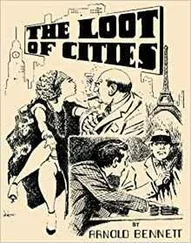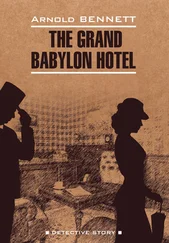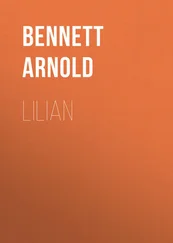Arnold Bennett - These Twain
Здесь есть возможность читать онлайн «Arnold Bennett - These Twain» — ознакомительный отрывок электронной книги совершенно бесплатно, а после прочтения отрывка купить полную версию. В некоторых случаях можно слушать аудио, скачать через торрент в формате fb2 и присутствует краткое содержание. Жанр: foreign_prose, foreign_antique, foreign_language, на английском языке. Описание произведения, (предисловие) а так же отзывы посетителей доступны на портале библиотеки ЛибКат.
- Название:These Twain
- Автор:
- Жанр:
- Год:неизвестен
- ISBN:нет данных
- Рейтинг книги:5 / 5. Голосов: 1
-
Избранное:Добавить в избранное
- Отзывы:
-
Ваша оценка:
- 100
- 1
- 2
- 3
- 4
- 5
These Twain: краткое содержание, описание и аннотация
Предлагаем к чтению аннотацию, описание, краткое содержание или предисловие (зависит от того, что написал сам автор книги «These Twain»). Если вы не нашли необходимую информацию о книге — напишите в комментариях, мы постараемся отыскать её.
These Twain — читать онлайн ознакомительный отрывок
Ниже представлен текст книги, разбитый по страницам. Система сохранения места последней прочитанной страницы, позволяет с удобством читать онлайн бесплатно книгу «These Twain», без необходимости каждый раз заново искать на чём Вы остановились. Поставьте закладку, и сможете в любой момент перейти на страницу, на которой закончили чтение.
Интервал:
Закладка:
Hilda shook her head bravely. Officially she did not know.
"Did you ever hear of such a thing?" exclaimed Auntie Hamps.
"Yes," proceeded Clara, taking breath for a new start. "And Bert's story is that they prayed for a penknife for your George, and it came. And then they prayed for a bicycle for our Bert, but the bicycle didn't come, and then Bert and George had a fearful quarrel, and George gave him the penknife-made him have it-and then said he'd never speak to him any more as long as he lived. At first Albert was inclined to thrash Bert for telling lies and being irreverent, but in the end he came to the conclusion that at any rate Bert was telling what he thought to be the truth… And that Clowes boy is so little ! … Bert wanted his birthday party of course, but he begged and prayed us not to ask George. So in the end we decided we'd better not, and we let him have his own way. That's all there is to it… So George has said nothing?"
"Not a word," replied Hilda.
"And the Clowes boy is so little !" said Clara again. She went suddenly to the mantelpiece and picked up a penknife and offered it to Hilda.
"Here's the penknife. Of course Albert took it off him."
"Why?" said Hilda ingenuously.
But Clara detected satire and repelled it with a glance.
"It's not Edwin's penknife, I suppose?" she queried, in a severe tone.
"No, it isn't. I've never seen it before. Why?"
"We were only thinking Edwin might have overheard the boys and thrown a knife over the wall. It would be just like Edwin, that would."
"Oh, no!" The deceitful Hilda blew away such a possibility.
"I'm quite sure he didn't," said she, and added mischievously as she held out the penknife: "I thought all you folks believed in the efficacy of prayer."
These simple words were never forgiven by Clara.
The next moment, having restored the magic penknife to the mantelpiece, and gathered up her infant, she was leading the way to the dining-room.
"Come along, Rupy, my darling," said she.
"'Rupy!'" Hilda privately imitated her, deriding the absurdity of the diminutive.
"If you ask me," said Auntie Hamps, determined to save the honour of the family, "it's that little Clowes monkey that is responsible. I've been thinking it over since you told me about it last night, Clara, and I feel almost sure it must have been that little Clowes monkey."
She was magnificent. She was no longer a house-keeper worried about the processes of jam-making, but a grandiose figure out in the world, a figure symbolic, upon whom had devolved the duty of keeping up appearances on behalf of all mankind.
The dining-room had not yet begun to move with the times. It was rather a shabby apartment, accustomed to daily ill-treatment, and its contents dated from different periods, the most ancient object of all stretching backwards in family history to the epoch of Albert's great-grandfather. This was an oak arm-chair, occupied usually by Albert, but on the present occasion by his son and heir, Bert. Bert, spectacled, was at the head of the table; and at the foot was his auntie Maggie in front of a tea-tray. Down the sides of the table were his sisters, thin Clara, fat Amy, and little Lucy-the first nearly as old as Bert-and his father; two crumb-strewn plates showed that the mother and Rupert had left the meal to greet the visitors. And there were two other empty places. In a tiny vase in front of Amy was a solitary flower. The room was nearly full; it had an odour of cake, tea, and children.
"Well, here we are," said Clara, entering with the guests and Rupert, very cheerfully. "Getting on all right?" (She gave Albert a glance which said: "I have explained everything, but Hilda is a very peculiar creature.")
"A1," Albert answered. "Hello, all you aunties!"
"Albert left the works early on purpose," Clara explained her husband's presence.
He was a happy man. In early adolescence he had taken to Sunday Schools as some youths take to vice. He loved to exert authority over children, and experience had taught him all the principal dodges. Under the forms of benevolent autocracy, he could exercise a ruthless discipline upon youngsters. He was not at all ashamed at being left in charge of a tableful of children while his wife went forth to conduct diplomatic interviews. At the same time he had his pride. Thus he would express no surprise, nor even pleasure, at the presence of Hilda, his theory being that it ought to be taken as a matter of course. Indeed he was preoccupied by the management of the meal, and he did not conceal the fact. He shook hands with the ladies in a perfunctory style, which seemed to say: "Now the supreme matter is this birthday repast. I am running it, and I am running it very well. Slip inobtrusively into your places in the machine, and let me continue my work of direction."
Nevertheless, he saw to it that all the children rose politely and saluted according to approved precedents. His eye was upon them. He attached importance to every little act in any series of little acts. If he cut the cake, he had the air of announcing to the world: "This is a beautiful cake. I have carefully estimated the merits of this cake, and mother has carefully estimated them; we have in fact all come to a definite and favourable conclusion about this cake, – namely that it is a beautiful cake. I will now cut it. The operation of cutting it is a major operation. Watch me cut it, and then watch me distribute it. Wisdom and justice shall preside over the distribution." Even if he only passed the salt, he passed it as though he were passing extreme unction.
Auntie Hamps with apparent delight adapted herself to his humour. She said she would "squeeze in" anywhere, and was soon engaged in finding perfection in everything that appertained to the Benbow family. Hilda, not being quite so intimate with the household, was installed with more ceremony. She could not keep out of her eye the idea that it was droll to see a stoutish, somewhat clay-dusted man neglecting his business in order to take charge of a birthday-party of small children; and Albert, observing this, could not keep out of his eye the rebutting assertion that it was not in the least droll, but entirely proper and laudable.
The first mention of birthday presents came from Auntie Hamps, who remarked with enthusiasm that Bert looked a regular little man in his beautiful new spectacles. Bert, glowering, gloomy and yet proud, and above all self-conscious, grew even more self-conscious at this statement. Spectacles had been ordained for him by the oculist, and his parents had had the hardihood to offer him his first pair for a birthday present. They had so insisted on the beauty and originality of the scheme that Bert himself had almost come to believe that to get a pair of spectacles for a birthday present was a great thing in a boy's life. He was now wearing the spectacles for the first time. On the whole, gloom outbalanced pride in his demeanour, and Bert's mysterious soul, which had flabbergasted his father for about a week, peeped out sidelong occasionally through those spectacles in bitter criticism of the institution of parents. He ate industriously. Soon Auntie Hamps, leaning over, rapped half-a-sovereign down on his sticky plate. Everybody pretended to be overwhelmed, though nobody entitled to prophesy had expected less. Almost simultaneously with the ring of the gold on the plate, Clara said:
"Now what do you say?"
But Albert was judiciously benevolent:
"Leave him alone, mother-he'll say it all right."
"I'm sure he will," his mother agreed.
And Bert said it, blushing, and fingering the coin nervously. And Auntie Hamps sat like an antique goddess, bland, superb, morally immense. And even her dirty and broken finger-nails detracted naught from her grandiosity. She might feed servants on dripping, but when the proper moment came she could fling half-sovereigns about with anybody.
Читать дальшеИнтервал:
Закладка:
Похожие книги на «These Twain»
Представляем Вашему вниманию похожие книги на «These Twain» списком для выбора. Мы отобрали схожую по названию и смыслу литературу в надежде предоставить читателям больше вариантов отыскать новые, интересные, ещё непрочитанные произведения.
Обсуждение, отзывы о книге «These Twain» и просто собственные мнения читателей. Оставьте ваши комментарии, напишите, что Вы думаете о произведении, его смысле или главных героях. Укажите что конкретно понравилось, а что нет, и почему Вы так считаете.












